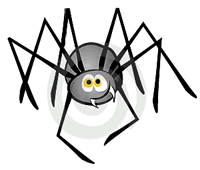The other day I was talking to a native Welsh speaker from South Wales who has lived in North Wales for many years. I mentioned that people in shops here sometimes switch to English when I talk to them in Welsh, and she told me that the same thing happens to her sometimes.
Apparently the South Wales accent is associated with Welsh learners, and this applies not just to actual learners, but also to native Welsh speakers from South Wales like my friend, who speaks North Walian dialect with a South Walian accent and therefore sounds a bit like a learner. She also told me that she tries to speak North Walian dialect because people round here find South Walian dialects difficult to understand.
In colloquial spoken Welsh and informal written Welsh there are plenty of differences between northern and southern varieties. Some examples of grammatical differences include:
| North Walian | South Walian | Formal Welsh | English |
|---|---|---|---|
| Mae gen/gin i … | Mae … ‘da fi | Mae gynnyf … | I have … |
| Sgin i … | Sdim … ‘da fi | Does gynnyf … | I don’t have … |
| Mi (w)nes i dweud | Mi/Fe ddwedes i | Dwedais | I said… |
| Ti isio …? | Ti moyn …? | Yr wyt ti eisiau …? | Would you like …? |
The auxiliary verb gwneud (to do) plus the main verb (in this example, dweud – to say) are used to form the past tense in North Wales. In South Wales and in formal Welsh the past tense endings are applied to the main verb, and the personal pronouns are not used in formal Welsh.
Differences in vocabulary include:
- llefrith (NW) llaeth (SW) = milk
- pres (NW) arian (SW) = money – [pres = brass & arian = silver]
- agoriad (NW) allwedd (SW) = key
- cenllysg (NW) cesair (SW) = hail
- dodrefn (NW) celfi (SW) = furniture
- crio / wylo (NW) llefain (SW) = to cry

